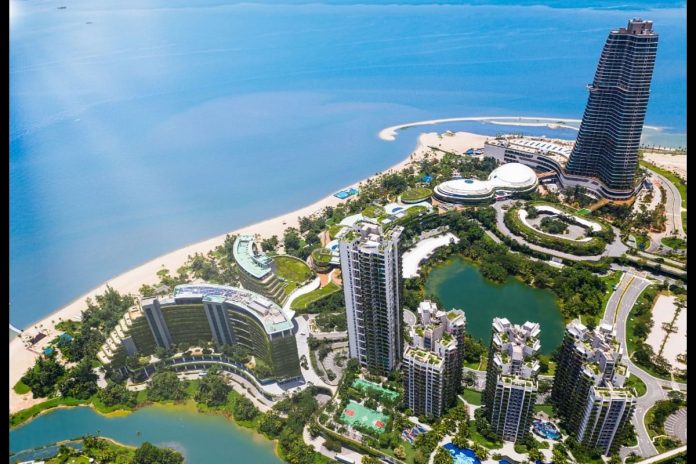Malaysian Prime Minister Anwar Ibrahim has announced that troubled Chinese real estate developer Country Garden’s $100 billion Forest City project in Johor will be redesignated as a ‘special financial zone’ with tax incentives and expedited entry regime for workers from Singapore.
Anwar announced that the incentives to be offered at Forest City include a special income tax rate of 15% for skilled workers and multiple entry visas.
The project is a joint venture between Country Garden, China’s largest private developer and private Malaysian company Esplanade Danga 88, which the Johor government and the Sultan of Johor back.
Country Garden recently missed two dollar coupon payments this month, totalling $22.5 million, sparking widespread fears that the country’s property debt crisis seriously threatens its economic recovery and may spill overseas.
The precarious financial position of the Chinese developer has cast a long shadow on the project’s viability.
The Forest City project is being built across four reclaimed islands in the state of Johor and in proximity to Singapore.
The venture envisages accommodating 700000 residents in waterfront apartment towers on four man-made islands spanning 30 sq km (11.6 square miles) between Malaysia and Singapore. Only 9,000 people live in Forest City despite having 28000 residential units completed thus far.
A promotional video during the project launch highlighted a special duty-free shopping zone and its proximity to Singapore. It included a video of tropical fish and sea turtles swimming in turquoise waters.
When it was launched, the developers claimed that Forest City would have parks, shopping malls and hotels, creating 220000 jobs and contributing an estimated $50 billion to the nation’s GDP by 2035.
The Forest City project was primarily aimed at attracting middle-income Chinese looking for seafront properties given the exorbitantly expensive property rates in the mainland(road signs are in Mandarin, and there are also a few schools there offering Mandarin courses inside the town.)
Due to the Sultan’s personal stake in the project, Forest City was initially approved at the state level (where most land use decisions are made) even as the project skirted national environmental regulations.
Eventually, the project developer was forced to address both national and even international concerns over the project.
Local stakeholders, including coastal residents, fishermen, and environmentalists, played an important role in drawing media attention to the project.
Widespread political pressure eventually forced Johor to establish a compensation fund for local fishermen.
Singapore’s objection also forced Country Garden to pay attention to Malaysia’s national environmental regulations.
The project has also been hit by capital control measures by the Chinese and strident opposition from veteran politician Mahathir Mohammed.
China’s concert efforts to limit capital outflow caused an adverse impact on the Forest City project, given it was primarily aimed at attracting middle-income Chinese.
In the last few years, China has spent trillions of dollars in an attempt to shore up its currency as big companies, and investors shifted their money out of the country over worries about tepid economic growth. China imposed new limits on how Chinese can invest and use their credit cards abroad.
Country Garden had to close all its sales centres in China that were set up to promote the Malaysia project in early 2017 when the crackdown on overseas currency spend came.
A steep deterioration in relations between China and Malaysia, in part due to the role played by Mahathir Mohamad, also hit the project.
Mahathir questioned the wisdom of building a city on Malaysian soil only “to be sold to foreigners”.


